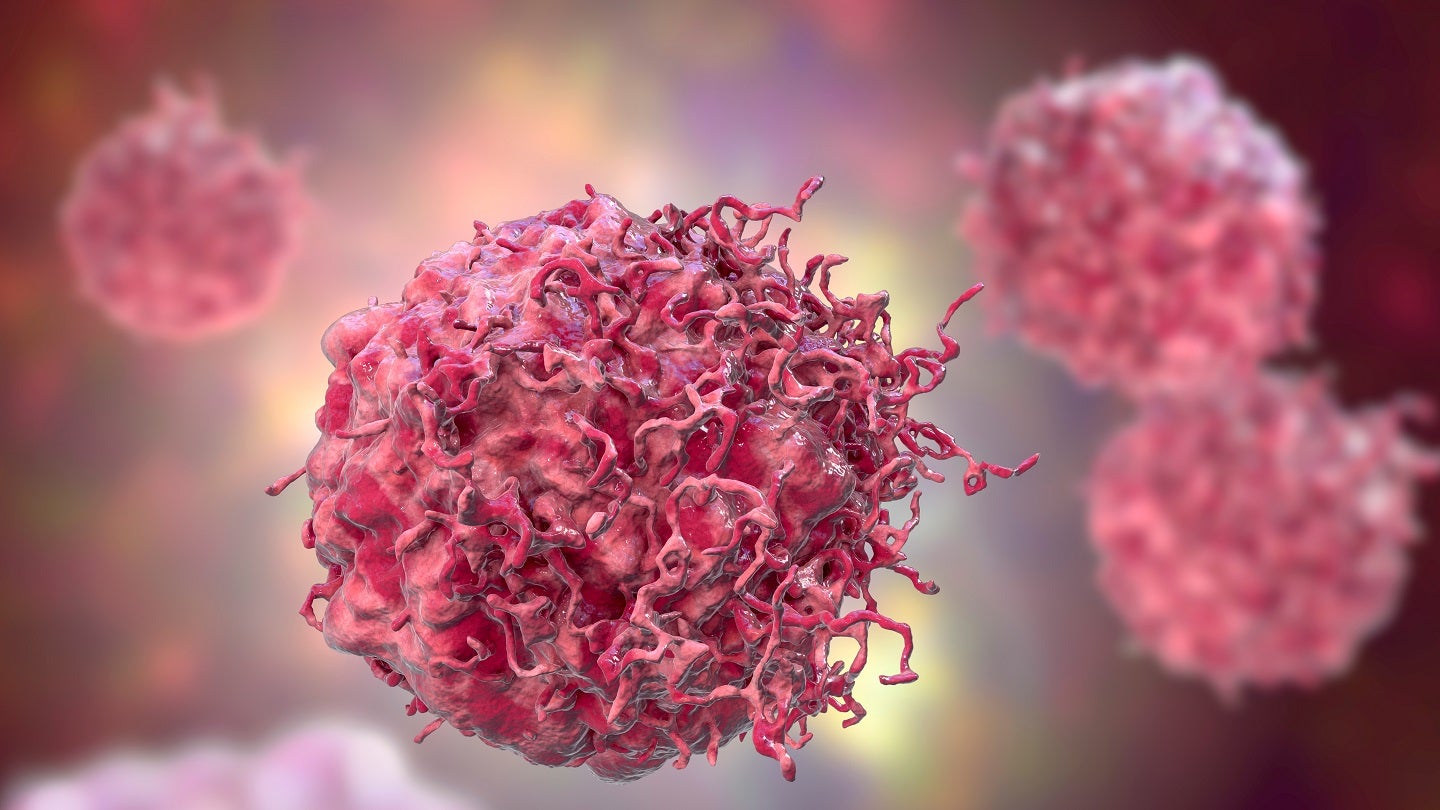
Triumvira Immunologics has announced its pipeline novel TAC T-cell therapy targeting solid tumours has been well tolerated in a Phase I trial.
The company has been conducting a Phase I/II trial of its pipeline candidate TAC01-HER2 in patients with a variety of cancers. Patients enrolled have been diagnosed with HER2-positive gastric cancer or metastatic HER2-positive gastroesophageal junction cancer and must have had no more than four prior therapies.

Discover B2B Marketing That Performs
Combine business intelligence and editorial excellence to reach engaged professionals across 36 leading media platforms.
TAC01-HER2 is a novel cell therapy based on genetically engineered autologous T-cells expressing a T-cell antigen coupler (TAC) that recognises human epidermal growth factor receptor 2 (HER2). The company is also using the TAC T-cell model to develop allogeneic T-cell treatments.
The full data from the Phase I cohort investigating the safety and efficacy of autologous TAC T-cells targeting HER2 in relapsed or refractory solid tumours (TACTIC-2/NCT04727151) shows the product was well-tolerated.
Triumvira CEO Paul Lammers told Clinical Trials Arena that the Phase I results showed an 86% disease control rate and 29% overall response rate across dose levels two to four in third-line plus gastro-oesophageal junction (GOJ) cancer.
No patients suffered neurotoxicity-related events
During Phase I, zero patients suffered neurotoxicity-related events and there were no ICU admissions. The most common toxicity observed across the cohorts was haematologic toxicities with most resolved in 24 days. One patient suffered grade III CRS at dose level four, and another patient suffered a dose-limiting toxicity which was target-related.

US Tariffs are shifting - will you react or anticipate?
Don’t let policy changes catch you off guard. Stay proactive with real-time data and expert analysis.
By GlobalDataThe first arm of the Phase II trial (NCT04727151) is investigating TAC01-HER2 as a monotherapy and will involve 36 patients. The patients, based in the US and Canada, will be dosed with a Simon 3 stage design.
The second arm, involving 34 patients, investigating the candidate in combination with Merck‘s Keytruda will start in Q2 2024 and be completed in 2025.
Currently, the trial is being conducted in the US and Canada due to the 24-vein-to-vein model of the therapy that uses the company’s Cocoon technology which is only located in the US. Lammers added that he hopes the company will be able to conduct further studies in Europe.
The company is developing autologous and allogenic products
Triumvira is developing both autologous and allogeneic T-cell therapeutics to treat a broad range of patients with cancer.
The company has a number of other pipeline products with both autologous and allogeneic approaches including TAC101-Claudin18.2, an autologous therapy at Phase I.
Tatiana Kolesnikova, director of oncology and haematology for GlobalData said: “If successful, TAC-100HER2 could become the first GMCT approved for gastric cancer. Given that HER2 is a clinically validated target, and TAC technology potentially offers a better built-in safety profile than CAR-T therapies developed by competitors, TAC-100HER2 might enjoy first-to-market and better tolerability advantages.
“The company also has an allogeneic TAC pipeline that would add off-the-shelf convenience to the mix and would expand the arsenal of treatments available to currently underserved patients with advanced solid tumors.
“Despite the clear theoretical advantages of the technology, numerous GMCT approaches have failed to produce lasting clinical benefit in late-stage trials following positive Phase I results, as such the road ahead for Triumvira contains both opportunities and challenges.”



